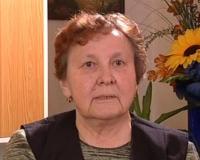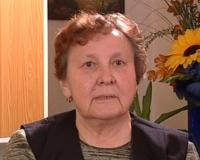My husband used to say, “it is not important to eat a bigger piece of bread, but rather to eat it freely, that is what matters.”

Download image
Anna Greňová was born in 1930 in Liptovský sv. Peter. She spent her childhood in Eastern Slovakia and her parents raised her as a Catholic. She participated in many different kinds of religious clubs; she was a member of the Catholic Youth Association in Poprad - Veľká and the Catholic scouting. She worked in a company for the production of rail freight and passenger transport vehicles in Poprad. In cooperation with two priests - Štefan Milan and Štefan Nahálka - she also founded the girls and boys clubs of Catholic Action with a focus on lay apostolate. These clubs were led in secrecy until the State Security began to persecute the priests. In 1953, she was investigated for her active Christian life and cooperation with the priests. Subsequently, on February 25, 1953, she was arrested and taken to the Košice prison. During the arrest, Anna was often interrogated and physically punished because the State Security wanted to find out where the priests she knew were located. The County Court in Košice sentenced her to spend four years in prison; however, the Supreme Court in Prague after an appeal sentenced her to five years. She spent 18 months in Košice remand centre, 7 months in a solitary confinement, and 22 months in a correctional labour camp in Želiezovce.

